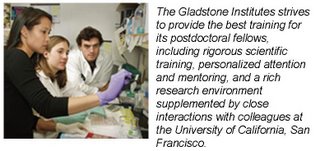**The Latest News about Postdoc union:
UAW Petition Filed with the University of California
Advocacy | Grievance | Society | Union Attention UCLA Postdoctoral Scholars:
The United Auto Workers (UAW) has filed a petition with the University of California for exclusive representation of postdoctoral scholars on all ten UC campuses and the Lawrence Berkeley National Laboratory. As a condition of the Public Employment Relations Board (PERB), the attached notice must be posted conspicuously on all employee bulletin boards in each facility where postdoctoral scholars are employed.
http://www.postdoc.ucla.edu/node/810
**NIH-NRSA fellowship is added with extra cash for New Medical Health insurance coverage??http://grants.nih.gov/grants/guide/notice-files/NOT-OD-06-090.html
Notice of New NIH Policy for Funding of Tuition, Fees, and Health Insurance on Ruth L. Kirschstein National Research Service Awards
Notice Number: NOT-OD-06-090
Key Dates
Release Date: August 4, 2006
Issued by
National Institutes of Health (NIH), (http://www.nih.gov)
The NIH announces a change in policy for funding of tuition, fees, and health insurance costs for NRSA Postdocs. The new policy applies to new and competing-continuation (renewal) NRSA institutional research training grants (T32, T34, and T35) beginning in fiscal year (FY) FY 2007, and competing individual fellowships (F30, F31, F32, and F33) awarded beginning in FY 2007. It also applies to institutional research training grants that received competing awards in FY 2006. For this cohort, the FY2007 non-competing awards will be issued recalculating budget categories to reflect this new policy.

 "THE WORLD IS CHANGING RAPIDLY" this is exactly what the 24 member faculty committee recognized in their recent committee meeting, the meeting was held to discuss issues around education and research, especially to bring out improvements in undergraduate education and research at Harvard. The plan is to enhance the current undergraduate education system with hands on experience. This is a new concept that is making way into education and higher education these days. So, the need to change the teachng and learning aproach of science subjects is finaly reaching the right places, initially it was debated that school children's must be provided chances in hands on experience, it now slowely spreading from the secondary school education level to the undergraduate level courses. Especially considering the amount of interests student will develop by doing few basic scientific experiments or involving in this "the hands on" approach. I believe it is a good idea, because doing a little bit of basic science as part of hands on experiments can promote more interests in science among the students.
"THE WORLD IS CHANGING RAPIDLY" this is exactly what the 24 member faculty committee recognized in their recent committee meeting, the meeting was held to discuss issues around education and research, especially to bring out improvements in undergraduate education and research at Harvard. The plan is to enhance the current undergraduate education system with hands on experience. This is a new concept that is making way into education and higher education these days. So, the need to change the teachng and learning aproach of science subjects is finaly reaching the right places, initially it was debated that school children's must be provided chances in hands on experience, it now slowely spreading from the secondary school education level to the undergraduate level courses. Especially considering the amount of interests student will develop by doing few basic scientific experiments or involving in this "the hands on" approach. I believe it is a good idea, because doing a little bit of basic science as part of hands on experiments can promote more interests in science among the students. 
